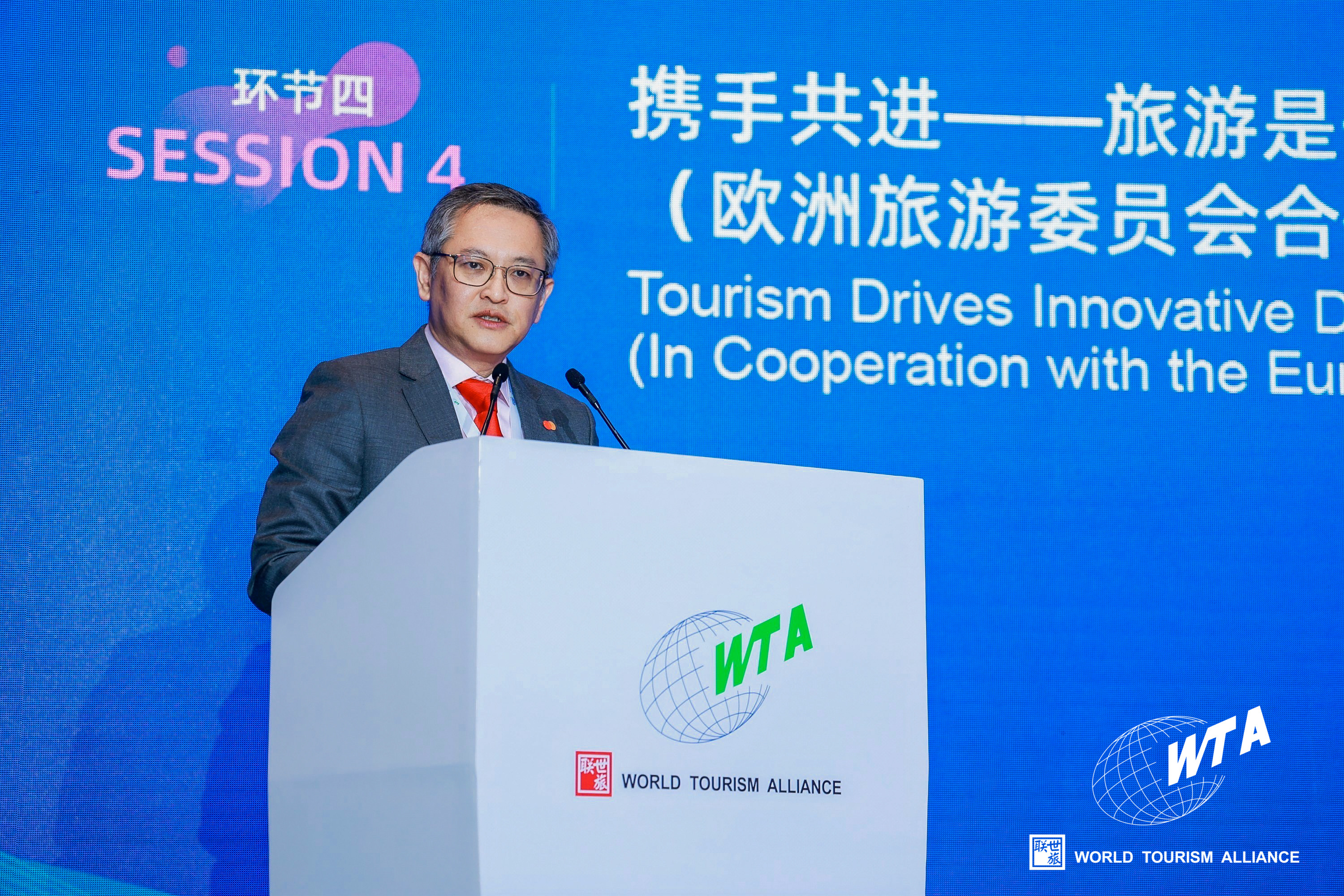2023-11-20

In a pivotal segment of the 2023 WTA • Xianghu Dialogue titled “Harmony and Sharing: Tourism Advances Sustainable Development”, Mr. LIM Kok Kee, Senior Vice President, Public Sector, Asia Pacific, Mastercard Asia/Pacifc Pte, Ltd., shared his insights on the “Insights-Based Sustainable Tourism”.
Here are excerpts from his speech:
Amidst the uneven recovery of the tourism sector in the Asia-Pacific region, where revival rates in key countries hover around 70% of their 2019 levels, significant variations exist between nations. From Singapore to Thailand, and extending to Australia and Japan, the aviation industry’s recovery ranges from 30% to 70%.
Despite these challenges, sustainable development has emerged as a notable trend among international travelers in the Asia-Pacific, with over 50% increasingly focusing on sustainability. Some are even willing to pay extra to support brands and companies committed to sustainable practices.
Chinese tourists, a significant demographic for Mastercard cardholders, have shown rapid growth in experiential spending, such as on cultural performances, concerts, dining, and wellness. Their demand for physical goods remains robust, with spending in Europe, Southeast Asia, and the Middle East rebounding strongly. The growing awareness of sustainable development among Chinese tourists calls for travel service providers to enhance their promotion of sustainable tourism and meet the tourists’ information needs regarding sustainability during their travels.
Sustainable tourism is not just about environmental concerns; it also involves a more comprehensive and systematic approach to preserving cultural heritage and natural ecosystems while ensuring socio-economic development. Mastercard advocates for a data-driven approach to change traveler behavior, from planning and booking to destination marketing. Utilizing digital ID verification and online booking tools can enhance the overall travel experience, bringing up more vitality and motivation to meet the evolving demands of travelers.
In response to climate change challenges, some Pacific islands are offering special entries for major inbound tourists, like those from Australia, to better protect their natural and cultural heritage. Sweden integrates tourism with zero-carbon goals, promoting public transportation in tourist cities to track and offset carbon footprints, contributing to sustainable tourism. In Costa Rica, a collaboration with local tourism authorities has led to the launch of a credit card enabling cardholders to track their carbon footprint.
In management, data-driven methods are used for measurement, aiding tourist destinations in long-term planning and improvement amidst dynamic changes. This includes enhanced monitoring of carbon footprints and refining statistical methods for tourist destination countries, as well as analyzing the concentration of tourism spending to timely adjust the supply of tourism products and services, maintaining attractiveness to tourists.